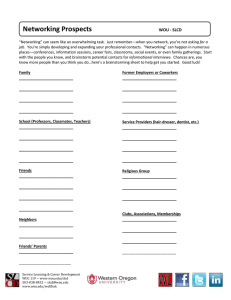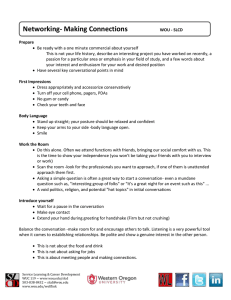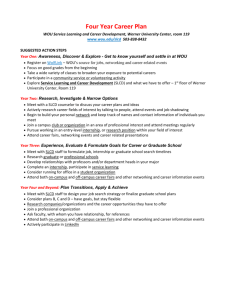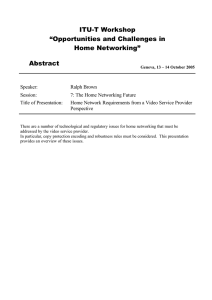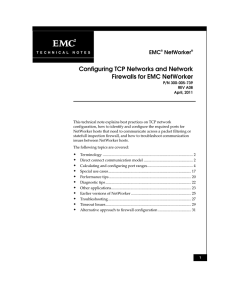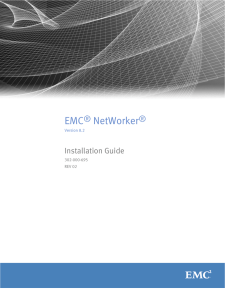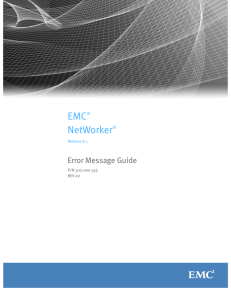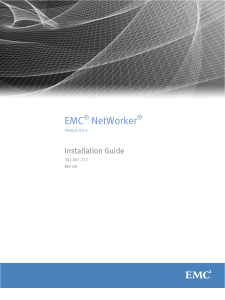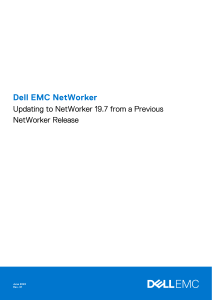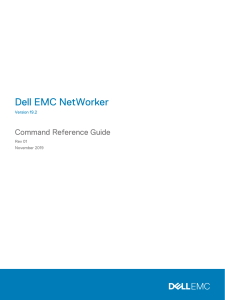Networking
advertisement
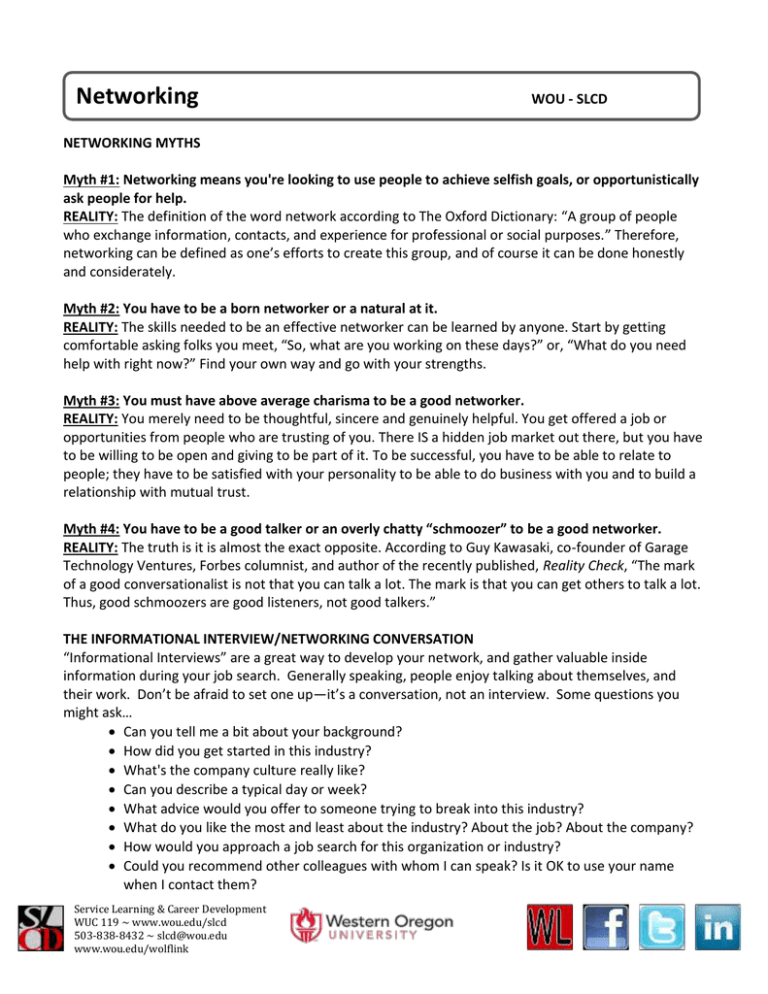
Networking WOU - SLCD NETWORKING MYTHS Myth #1: Networking means you're looking to use people to achieve selfish goals, or opportunistically ask people for help. REALITY: The definition of the word network according to The Oxford Dictionary: “A group of people who exchange information, contacts, and experience for professional or social purposes.” Therefore, networking can be defined as one’s efforts to create this group, and of course it can be done honestly and considerately. Myth #2: You have to be a born networker or a natural at it. REALITY: The skills needed to be an effective networker can be learned by anyone. Start by getting comfortable asking folks you meet, “So, what are you working on these days?” or, “What do you need help with right now?” Find your own way and go with your strengths. Myth #3: You must have above average charisma to be a good networker. REALITY: You merely need to be thoughtful, sincere and genuinely helpful. You get offered a job or opportunities from people who are trusting of you. There IS a hidden job market out there, but you have to be willing to be open and giving to be part of it. To be successful, you have to be able to relate to people; they have to be satisfied with your personality to be able to do business with you and to build a relationship with mutual trust. Myth #4: You have to be a good talker or an overly chatty “schmoozer” to be a good networker. REALITY: The truth is it is almost the exact opposite. According to Guy Kawasaki, co-founder of Garage Technology Ventures, Forbes columnist, and author of the recently published, Reality Check, “The mark of a good conversationalist is not that you can talk a lot. The mark is that you can get others to talk a lot. Thus, good schmoozers are good listeners, not good talkers.” THE INFORMATIONAL INTERVIEW/NETWORKING CONVERSATION “Informational Interviews” are a great way to develop your network, and gather valuable inside information during your job search. Generally speaking, people enjoy talking about themselves, and their work. Don’t be afraid to set one up—it’s a conversation, not an interview. Some questions you might ask… Can you tell me a bit about your background? How did you get started in this industry? What's the company culture really like? Can you describe a typical day or week? What advice would you offer to someone trying to break into this industry? What do you like the most and least about the industry? About the job? About the company? How would you approach a job search for this organization or industry? Could you recommend other colleagues with whom I can speak? Is it OK to use your name when I contact them? Service Learning & Career Development WUC 119 ~ www.wou.edu/slcd 503-838-8432 ~ slcd@wou.edu www.wou.edu/wolflink FOLLOW-UP No matter how successful an informational interview or networking event, it means nothing unless you follow up. E-mail is perfect for this type of contact. Reintroduce yourself with a short, well-written note within a few days of meeting. Avoid the standard: "Nice meeting you, looking forward to talking to you soon" message. You took this person's card for a reason –mention something you discussed, or send a link to an article or newsletter you think they can use. If you're sending your resume, remember to thank them for taking the time to do you this favor. Once you do get a job, keep good contacts updated on your situation, whether or not they, or their advice, helped you at all. The 30-Second “Infomercial” (Your Pitch): Your infomercial is your introduction of your best employment-related qualities. It is your pitch. The 30 second version is a quick introduction and should begin by introducing yourself. The 2 Minute version is for interviews and discussions. It answers the query so often posed by prospective employers, interviewers, and anybody who might be in a position to assist you in your job search. It’s the answer to, “So tell me about yourself.” This is a brief statement of what really interests you (your focus), what you're good at (your skills) and possibly what's important to you (your values, needs and work style preferences). Make sure you tailor your information so that it is relevant to the person you're talking to. Example: (My name is Bertha Sanchez and I have over 2 years experience in sales and marketing as well as event coordination. I am currently working at OSU as______ and I’m interested in working for a company where I can use my communication and planning skills.) Practice!
